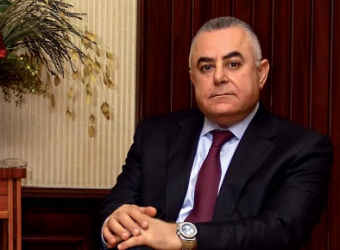Egypt’s central bank is likely to keep interest rates on hold at a meeting on Thursday, a Reuters survey shows, so as not to push up already high inflation.
The economy has been badly damaged by political instability since the overthrow of former president Hosni Mubarak in 2011. It grew 2.2 percent in the year to June 30, tepid for an emerging economy and far too slow to make an impact on youth unemployment, estimated at over 20 percent.
At its last monetary policy meeting on September 19, the central bank cut its key overnight interest rates by 50 basis points (bps), saying it was stressing higher growth over lower inflation. It was the second half-point cut in a row after the bank began easing policy in August.
Data since the last meeting, however, has shown inflation spiked back to just above 10 percent in September, after dipping to 9.7 percent in August.
“There should be some respite in the monthly October inflation figure because food prices have already risen sharply for four consecutive months,” said Giyas Gokkent, group chief economist at National Bank of Abu Dhabi.
“However, school fees typically rise in October and that will be a driver of inflation for the month of October … It would be prudent to maintain the policy rate unchanged for now and await incoming data,” he added.
Eight of nine economists in a Reuters survey forecast the bank would leave its overnight rates unchanged on Thursday. One expected another 50 bps reduction.
The central bank is also under pressure to keep interest rates high to attract funds out of foreign currencies and into the Egyptian pound. The bank has spent tens of billions dollars supporting its currency since the 2011 uprising which hammered tourism revenues and foreign investment.
Egypt’s cabinet, appointed after the army removed Islamist President Mohamed Morsi from power on July 3 following mass protests against him, will spend 29.6 billion Egyptian pounds ($4.30 billion) on a stimulus package to try and get the economy going.
Gulf countries have pledged more than $12 billion in aid to Egypt since July.
The central bank’s current deposit rate stands at 8.75 percent and its lending rate at 9.75 percent. The discount rate and the rate the bank uses to price one-week repurchase and deposit operations is 9.25 percent.
Source: Reuters



